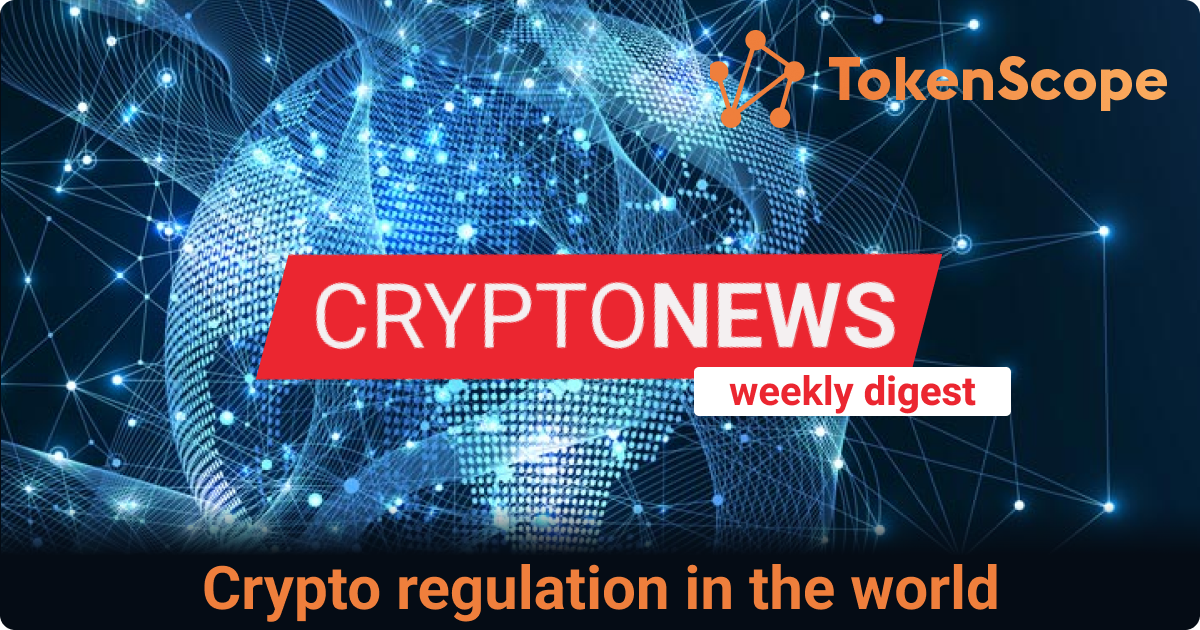Crypto regulation in the world: weekly digest #90

Argentina
Argentina's Comisión Nacional de Valores (CNV) has announced a mandatory registration for individuals and businesses involved in Bitcoin-related services, aligning with FATF recommendations. The new regulations, which extend beyond local businesses to include any company operating in Argentina's market, aim to address AML/CFT laws. The registry includes a variety of crypto-related services, such as purchasing, selling, transferring, receiving, lending, and trading digital currencies. Unregistered virtual asset service providers will not be able to operate in the country.
The new rules have raised concerns among industry participants and Bitcoin users, with reports of difficulties using Bitcoin payment apps in Argentina, such as Belo and Strike, which had previously facilitated Bitcoin transfers. The long-term effects of the new registry on the market are yet to be seen, but for now, individual users do not appear to be immediately impacted by the regulation.
The new Argentinian crypto licensing regime signifies a significant shift in the country's approach to regulating cryptocurrencies. Here is a concise overview of the key points regarding this regulatory landscape:
Argentina has been developing new regulations that require virtual asset providers, including cryptocurrency exchanges, to register with the CNV since 2023. These regulations aim to comply with international standards set by the Financial Action Task Force to prevent money laundering and ensure the security of public savings. The CNV establish and regulate requirements for crypto companies operating in Argentina, focusing on user protection, operational efficiency, security, and anti-money laundering measures.
USA
Ripple, a leading provider of enterprise blockchain and crypto solutions, has announced plans to launch a stablecoin pegged 1:1 to the US dollar. The stablecoin will be 100% backed by USD deposits, short-term US government treasuries, and other cash equivalents, with reverse assets audited by a third-party accounting firm. Ripple will publish monthly attestations, and the stablecoin will be available on both the XRP Ledger and Ethereum blockchains, with plans to expand to additional blockchains and DeFi protocols.
Ripple's stablecoin launch is a strategic move to bridge the gap between traditional finance and crypto, tapping into a burgeoning market estimated to reach US$2.8tn in four years. The stablecoin will drive more use cases, liquidity, and opportunities for developers and users in the XRP Ledger community, attracting new users and liquidity to XRP Ledger, which operates at the center of the emerging DeFi sector. The stablecoin will be a high-quality stablecoin backed by short-term Treasuries, cash, and equivalents, making tremendous sense for Ripple as a company.
Earlier in 2023, PayPal entered the stablecoin market with the launch of a dollar-backed stablecoin called PayPal USD (PYUSD). The stablecoin is issued by Paxos Trust Co., regulated by the New York State Department of Financial Services, and is also backed 100% by US dollar deposits and short-term US Treasury securities.
Singapore
Singapore has enacted licensing requirements for entities providing custodial and some other crypto services. The changes, which were passed in parliament in 2021, expanded the scope of what cryptocurrency-related activities Singapore regulates to include custodial services. The amendments impose user protection and financial stability-related requirements on digital payment token (DPT) or cryptocurrency service providers. These requirements include segregating customers' assets and placing them in a trust account for the benefit of customers, maintaining proper books and records, and ensuring that effective systems and controls are in place.
Entities that are already conducting crypto-related activities under the Payment Services Act will need to start a transition process within 30 days and submit a license application within six months from April 4, 2024, to continue activities temporarily till their application is reviewed. The license application will require an attestation report of compliance with requirements around anti-money laundering and countering the financing of terrorism, qualified by an external auditor within nine months. Entities that do not comply with these requirements would have to cease all activities.
The Monetary Authority of Singapore (MAS) is the primary regulator for crypto in Singapore, operating under the Payment Services Act (PSA) of 2019. MAS holds authority over businesses engaged in DPT services, encompassing activities such as operating exchanges, buying or selling DPTs, and providing wallets.
News from other countries:
-
Faruk Fatih Ozer, the ex-CEO of the now-defunct Turkish cryptocurrency exchange Thodex, has been sentenced by the court to 11,196 years in prison for his involvement in the fraud scheme.
-
The U.S. Securities and Exchange Commission has initiated discussions and opened a comment period for three proposed spot Ethereum exchange-traded fund (ETF) applications. These applications are tied to Grayscale Investments, Fidelity, and Bitwise, and are subject to a three-week comment period to gather feedback from interested parties.
We continue to highlight the news of the world of crypto regulation worldwide. Please stay with us!




